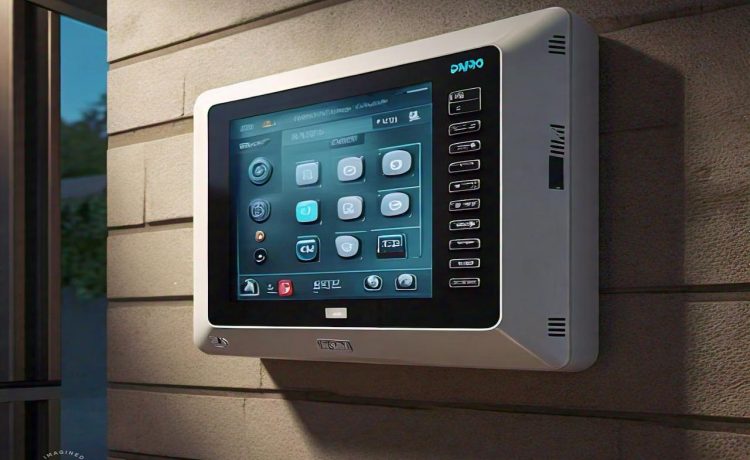A home is more than just four walls and a roof – it’s a sanctuary, a place where individuals and families should feel safe and secure. Unfortunately, when a burglary occurs, that sense of safety is shattered, leaving a lasting impact that goes far beyond material loss. For many families, the emotional and psychological effects of a break-in can be profound, creating feelings of vulnerability, fear, and anxiety that persist long after the event.
All Security Solutions is the expert in security systems and burglar alarms in London, renowned across the capital and beyond for their range of solutions for the home and business. In this blog post, our team will explore the mental health impact of burglaries on homeowners and families, and discuss practical security measures – including burglar alarms and other safety tips – that can help restore a sense of security in the home.
The Emotional Aftermath of a Burglary
Experiencing a break-in can be a deeply traumatic event. While the immediate aftermath often focuses on the physical damage and loss of possessions, the emotional scars are often much harder to repair. Victims frequently report feeling violated, knowing that a stranger has entered their home, touched their belongings, and disregarded their personal space.
The psychological effects of a burglary can manifest in various ways, including:
1. Anxiety and Fear
For many, the most immediate reaction to a burglary is fear. This fear often stems from the worry that the intruder might return or that another crime could take place. It’s common for victims to feel unsafe in their own homes, particularly at night, and even the smallest noise can trigger feelings of panic or anxiety.
2. Sleep Disturbances
A break-in can disrupt the normal sleep patterns of those affected. Many burglary victims experience trouble falling asleep, fear of being vulnerable while asleep, and recurring nightmares about the event. This chronic lack of rest can contribute to feelings of fatigue, stress, and irritability, further impacting their mental well-being.
3. Post-Traumatic Stress Disorder (PTSD)
In more severe cases, the trauma of a burglary can lead to symptoms of PTSD, particularly if the event was violent or occurred while the family was at home. Flashbacks, hypervigilance, and feelings of helplessness are all common symptoms associated with PTSD. For children, the effects can be even more profound, with some experiencing long-term emotional distress or fear of being left alone in the house.
4. Loss of Trust
A burglary can shatter a homeowner’s sense of trust – not just in their home but in their neighbourhood and community. It’s not uncommon for victims to feel isolated or detached from the people around them, believing that those they once considered neighbours might not have their best interests at heart. This erosion of trust can lead to feelings of loneliness and isolation, further exacerbating the mental health impact.
The Impact on Families
The emotional toll of a burglary is not just confined to the individual who directly experiences it – entire families can be affected. For parents, the added burden of worrying about their children’s safety can intensify the emotional strain. Children, meanwhile, may develop fears about their home being unsafe, leading to clinginess, nightmares, or changes in behaviour.
In some cases, the fear of a repeat burglary can drive families to alter their daily routines. Families might find themselves avoiding leaving the house for extended periods or constantly checking that doors and windows are locked. The stress of living in fear can put a strain on family relationships, leading to arguments or misunderstandings about how best to cope with the aftermath of the burglary.
Restoring Peace of Mind: Security Measures to Protect Your Home
While the emotional impact of a burglary can be long-lasting, there are steps homeowners can take to feel safer and reduce the risk of future break-ins. Investing in home security measures can provide physical protection and the peace of mind that comes from knowing your home is secure.
Here are some key security measures to consider:
1. Burglar Alarms
Installing a burglar alarm system is one of the most effective ways to protect your home. Alarms are a powerful deterrent, as most burglars will avoid homes with visible security systems in place. Modern burglar alarms can be connected to a monitoring service that alerts the homeowner or the police in the event of an intrusion, providing an additional layer of protection. The mere presence of an alarm system can help reduce anxiety and restore a sense of security within the home.
2. CCTV Systems
Closed-circuit television (CCTV) cameras are another excellent deterrent for burglars. Installing cameras around the exterior of your home not only discourages intruders but also provides valuable evidence in the event of a break-in. Many modern CCTV systems are accessible via smartphones, allowing homeowners to monitor their property in real-time, no matter where they are. This added visibility can give families a greater sense of control over their safety.
3. Motion-Activated Lighting
Burglars often carry out their crimes unnoticed under the cover of darkness. Installing motion-activated lighting around your home’s perimeter can make it much harder for intruders to approach without being detected. Well-lit areas around entry points such as doors and windows can also make a burglar think twice before attempting a break-in.
4. Secure Locks and Reinforced Doors
An often overlooked aspect of home security is the quality of locks and doors. Ensure that all external doors are fitted with high-quality locks, preferably those that meet British Standard BS3621. Consider reinforcing doors with security bars or installing a deadbolt for added protection. Windows should also be fitted with secure locks, and vulnerable windows on ground floors or near rooftops should be protected with security grilles.
5. Neighbourhood Watch and Community Support
Being part of a neighborhood watch scheme can provide a sense of security. Neighbors looking out for one another, reporting suspicious activity, and creating a close-knit community can all help reduce the likelihood of a burglary. Feeling supported by those around you can also help alleviate the feelings of isolation and fear that often follow a break-in.





